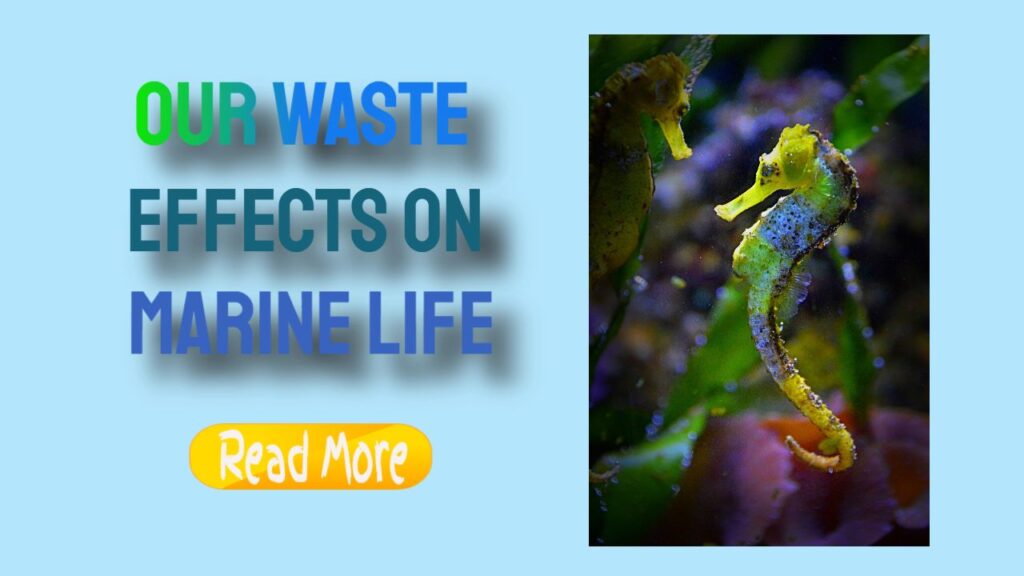Dive Deep into Essential Environmental Topics
- Understand How Oil Spills Affect Our Environment
- Investigate the Health Risks Associated with Oil Spill Toxicity
- Analyze the Impact of Ocean Acidification on Marine Ecosystems
- Identify Major Threats Facing Marine Environments Today
- Examine the Societal Repercussions of Oil Spill Incidents
- Explore the Economic Ramifications of Oil Spills
- Recognize the Critical Effects of Oil Spills on Marine Life
- Evaluate the Impact of Oil Spills on Marine Fauna
Understand How Oil Spills Affect Our Environment
The challenge of marine pollution encompasses a range of issues, including chemical, industrial, and agricultural contaminants that have become more pronounced in recent decades. Incidents like oil spills, untreated sewage discharges, and the spread of invasive species have raised alarms among scientists and environmental advocates. The detrimental effects of these pollutants threaten not only marine ecosystems but also human health. Continuous monitoring and research initiatives are crucial for quantifying levels of chemical and plastic pollution in our oceans. Various methodologies are used to track pollutant discharges from land-based activities, particularly oil spills. Programs such as Horizon 2020 aim to enhance the health of the Mediterranean by identifying pollution sources and advocating for sustainable marine conservation practices.
Research on marine pollution primarily investigates its consequences for biodiversity, potential health risks to humans, and the overall experience within marine environments. This analysis highlights the interconnectedness of these categories, emphasizing their importance. While certain seabird populations exhibit adverse effects due to oil exposure, the overall stocks of marine species have not shown significant declines as a result of pollution alone. Factors such as reproductive success and population dynamics are often heavily influenced by external pressures beyond pollution. Interestingly, regions like the North Sea, despite experiencing rising pollution levels, have reported increases in fish populations like cod and haddock over the decades, demonstrating resilience in some marine species.
Deep-sea mining operations also contribute significantly to marine pollution, as valuable minerals such as silver, gold, and copper are extracted from the ocean floor. These activities generate sulphide deposits at considerable depths, potentially releasing harmful substances that can worsen ocean toxicity. Although ongoing scientific research seeks to uncover the full environmental implications of deep-sea mining, it is evident that these operations pose considerable risks to marine ecosystems. They can cause irreversible damage and increase the chances of oil spills and contamination, exacerbating existing challenges within our oceans.
Investigate the Health Risks Associated with Oil Spill Toxicity
While oil spills contribute significantly to marine pollution, they represent only one segment of a broader issue. Other critical sources of ocean pollution arise from discharges and runoff originating from urban and agricultural areas. Each year, millions of pounds of untreated waste, including sewage and toxic materials, are released into rivers, ultimately flowing into the ocean. Industrial processes and agricultural runoff exacerbate this issue by introducing hazardous chemicals and pollutants into waterways. The cumulative effects of these pollutants pose severe risks not only to marine ecosystems but also to human health, highlighting the urgent need for comprehensive pollution management strategies.
Ship-based pollution remains a primary source of maritime contamination, particularly due to oil spills. Crude oil can persist in ocean waters for years, exhibiting high toxicity to marine organisms and leading to suffocation when creatures become ensnared in oil. The clean-up of oil spills is notoriously difficult and complex, posing challenges for the recovery of impacted marine environments. The extent of damage inflicted by oil largely depends on various factors, including the type of oil, its viscosity, and the effectiveness of clean-up measures employed. For example, lighter oils may affect marsh vegetation differently compared to heavier crude oils, with each variant presenting unique recovery challenges. Ongoing research into the ecotoxicology of marine pollutants is crucial for understanding their impacts on both human and environmental health.
Ultimate Secrets To Saltwater Fish And Invertebrates
Analyze the Impact of Ocean Acidification on Marine Ecosystems
Consider the vast diversity of life that inhabits our oceans. The increasing levels of acidity in marine environments can profoundly alter the dynamics of various plant and animal species, often leading to unpredictable consequences. While some organisms, such as seagrasses, may flourish with higher levels of dissolved carbon dioxide, others, like oysters, can struggle as their larvae fail to thrive in more acidic conditions. As a result, ocean and coastal acidification may provoke significant shifts within entire ecosystems, impacting species abundance and their interactions with one another.
It is estimated that approximately 80% of marine pollution originates from land, largely due to the pressures exerted by growing coastal populations. Nutrient pollution stemming from agricultural runoff and sewage overwhelms marine environments with excessive nitrogen and phosphorus, leading to harmful algal blooms. The decomposition of these blooms depletes oxygen levels, resulting in hypoxic zones where marine life cannot survive. Furthermore, as the ocean, which covers 71% of our planet, continues to absorb greenhouse gases and experiences increases in temperature, it disrupts the delicate balance of marine and coastal ecosystems. Additionally, the melting ice caps and altered ocean currents contribute to these ongoing environmental changes.
Plastic pollution has emerged as a critical concern in coastal and marine ecosystems around the globe. The persistent influx of plastic waste disrupts the structure and function of these ecosystems, posing both direct and indirect threats to marine life. The sources of plastic pollution are varied, originating from both land-based and ocean-based activities, and manifesting in various forms such as metaplastic, macroplastics, mesoplastics, and microplastics. Understanding the implications of plastic pollution is essential for developing effective strategies aimed at mitigating its impacts on marine environments.
Identify Major Threats Facing Marine Environments Today
Antimicrobial resistance (AMR) has likely been present in marine microbial communities for centuries, but its prevalence has surged in recent years, particularly in coastal waters. This increase is thought to correlate with the growing introduction of pollutants and pathogens from land-based sources into marine ecosystems. The detrimental effects of plastic litter on marine environments have been extensively documented, showing that numerous marine species face threats from plastic waste, jeopardizing their survival, especially as many species already contend with other human-induced pressures.
Marine animals frequently suffer from entanglement and ingestion of plastic debris, leading to severe health consequences and population declines. Lesser-known threats include the indirect effects of plastic waste on invasive species and the potential for harmful chemicals, such as polychlorinated biphenyls, to infiltrate the food chain. The socio-economic impacts of marine litter are complex and interconnected, presenting challenges for effective management and mitigation strategies. Research into ghost fishing, for instance, reveals the significant economic losses associated with lost fishing gear, illustrating the broader implications of marine pollution on livelihoods and coastal economies.
Examine the Societal Repercussions of Oil Spill Incidents
The escalating pollution of our oceans due to human activities is undermining the sustainability of marine ecosystems, leading to profound societal consequences. Advanced monitoring technologies, including airborne and spaceborne sensors, are being deployed to provide comprehensive insights into major marine pollutants, such as oil spills, chemical discharges, and algal blooms. However, the complexities of evaluating pollutants arise from their dynamic nature and the limitations of existing data regarding their specific characteristics and impacts, particularly in optically shallow waters.
Noteworthy oil spill events, such as the Exxon Valdez and Deepwater Horizon disasters, have left indelible marks on marine environments and local communities. The Torrey Canyon spill in 1967 marked one of the earliest significant oil disasters, releasing an estimated 25-36 million gallons of crude oil off the coast of Cornwall, England, and severely affecting coastlines in both the UK and France. The Deepwater Horizon spill, which originated from the seabed, had devastating impacts on the Gulf Coast’s ecosystem, affecting marine life across all levels. In marine oil spills, fish and other marine organisms are often the first to be impacted, facing exposure to toxic oil components that can lead to long-term health issues and reproductive challenges.
Explore the Economic Ramifications of Oil Spills
Estuaries, often situated near petrochemical industries, are especially vulnerable to oil exposure due to transport activities conducted via ships and pipelines. Oil spills can inflict serious damage on vital intertidal habitats, including salt marshes and mangroves, resulting in enduring ecological consequences. The entanglement of marine animals in debris and their accidental ingestion of harmful materials further amplify the risks associated with oil spills, affecting species such as seabirds, turtles, and marine mammals.
Oil plays a pivotal role in the modern economy, functioning as an inexpensive energy source and a primary component for plastics. The implications of oil and gas exploration and production are multifaceted, impacting ecosystems at every stage, from exploration to extraction and eventual combustion. In the North Sea, it is estimated that offshore activities contribute to 29% of the total oil input into marine environments, underscoring the persistent risks linked to oil production and its long-term effects on both marine life and economic stability.
Recognize the Critical Effects of Oil Spills on Marine Life
Despite the advancements made in environmental regulations, oil spills continue to pose a significant threat to marine ecosystems. While most oil spills are relatively small in scale, collectively they contribute to a considerable volume of oil entering marine environments, with over 5.65 million tonnes released due to tanker spills from 1970 to 2009. The environmental hazards associated with offshore oil production are profound, as large-scale spills can have catastrophic impacts on marine wildlife and coastal communities.
The Deepwater Horizon blowout in 2010 serves as a stark reminder of the potential devastation caused by offshore drilling accidents. Although natural disturbances often enable ecosystems to recover, oil spills introduce persistent contaminants that can disrupt marine life for generations. Larger marine mammals and seabirds, in particular, are especially vulnerable to the immediate and long-term health consequences of oil exposure, which can lead to physiological changes, immune system deficiencies, and reproductive failures.
Many coastal and marine ecosystems have adapted to endure natural disturbances, which create opportunities for new organisms to flourish. However, oil spills introduce a level of disruption that can hinder these natural recovery mechanisms. Understanding and bolstering the natural restoration processes of affected ecosystems is essential for mitigating the long-term consequences of oil spills and fostering resilient marine environments.
Evaluate the Impact of Oil Spills on Marine Fauna
Oil and gas exploration activities create numerous challenges for marine ecosystems, primarily through the occurrence of oil spills and associated noise pollution. Each year, thousands of oil spills transpire in the United States alone, resulting in significant harm to marine habitats and wildlife. The repercussions of oil spills can endure for decades, while cleanup efforts often succeed only in removing a fraction of the oil, occasionally introducing additional harmful chemicals that worsen the situation. Marine mammals, including dolphins and whales, face heightened health risks when exposed to oil and toxic substances stemming from drilling operations.
The impact of marine debris, commonly referred to as “plastic trash,” is also a substantial concern. Millions of Americans engage in coastal activities, often unaware of how their everyday actions contribute to marine pollution. Marine litter threatens the ecological integrity of coral reefs and other critical habitats, leading to declines in biodiversity and disrupting essential ecological functions. All species of sea turtles and over half of known marine mammal species are adversely affected by marine litter, resulting in entanglement, ingestion, and potential toxicity from chemicals leaching from plastics.
The Ocean Conservancy estimates that plastic pollution impacts over 690 species of marine life, highlighting the urgent need for innovative solutions. Some businesses are exploring alternatives to traditional plastic products, such as edible six-pack rings crafted from leftover brewing materials. The absence of comprehensive scientific data on marine plastic pollution, despite its widespread acknowledgment, underscores the necessity for ongoing research and public awareness to tackle this pressing issue.
Coastal regions are increasingly affected by human activities, with marine pollution and climate change presenting significant challenges to these environments. Understanding the cumulative effects of these pressures is crucial for effective coastal zone management and developing proactive strategies to mitigate environmental risks. The responsibility lies with every individual to contribute to the preservation of our oceans, ensuring they remain healthy and vibrant for generations to come.
The Article Impact of Waste on Marine Life Was Found On https://limitsofstrategy.com



This post really highlights the messy side of our love affair with oil! It’s like we’ve invited this slippery substance to the party without realizing it’s bringing its own hazards—think confetti, but instead it’s toxic chemicals and marine life in distress. Just last month, I read about a dolphin rescue in Florida where some poor creatures were struggling with oil-coated skin. It’s a stark reminder that even our ‘short-lived’ splashes of fun can have tidal waves of trouble.
You’ve captured such a poignant image with that party metaphor. It really is like we’ve invited oil into our lives without fully grasping the consequences. The impact it has on marine life, particularly with stories like the dolphin rescue, always hits home. Those animals, so intelligent and curious, deserve better than to suffer from our choices.
You’ve captured the essence of the issue so well. It’s heartbreaking to think about the unintended consequences that come with our reliance on oil. It often feels like we’re stuck in a cycle where the benefits of fossil fuels overshadow the real-world impacts they have on our environment and creatures we share this planet with.
This post sheds light on such a crucial issue! Oil spills are far more than just environmental disasters; they ripple through our health, economies, and even social structures. I recently read about the long-term effects of the 2010 Deepwater Horizon spill on local communities in the Gulf Coast. Many fishermen and their families suffered economically as fish populations dwindled and their livelihoods crumbled. It makes me wonder about the balance between energy demands and the protection of vulnerable marine and human populations.
You raise some very important points. The long-lasting impacts of the Deepwater Horizon spill illustrate just how intertwined our environment and economy can be. The experiences of the Gulf Coast communities highlight the devastating consequences that can follow an oil spill—not just in terms of environmental damage but also in the unraveling of social ties and economic stability.
You’ve touched on a really important aspect of oil spills that often gets overlooked in the broader conversation. We tend to think of these events as isolated environmental disasters, but, as you’ve noted, the effects can linger for years, touching every corner of affected communities—economically, socially, and health-wise. The situation for fishermen and their families in the Gulf Coast after the Deepwater Horizon incident is a sobering example of this reality. Many found their way of life deeply impacted, not just by immediate losses, but by changes in the ecosystem that took years to manifest.
You bring up an important point about the far-reaching impacts of oil spills. The 2010 Deepwater Horizon spill really illustrates how environmental issues can intertwine with the socio-economic fabric of communities. It’s heartbreaking to think of families losing their way of life because of something that feels so out of their control.